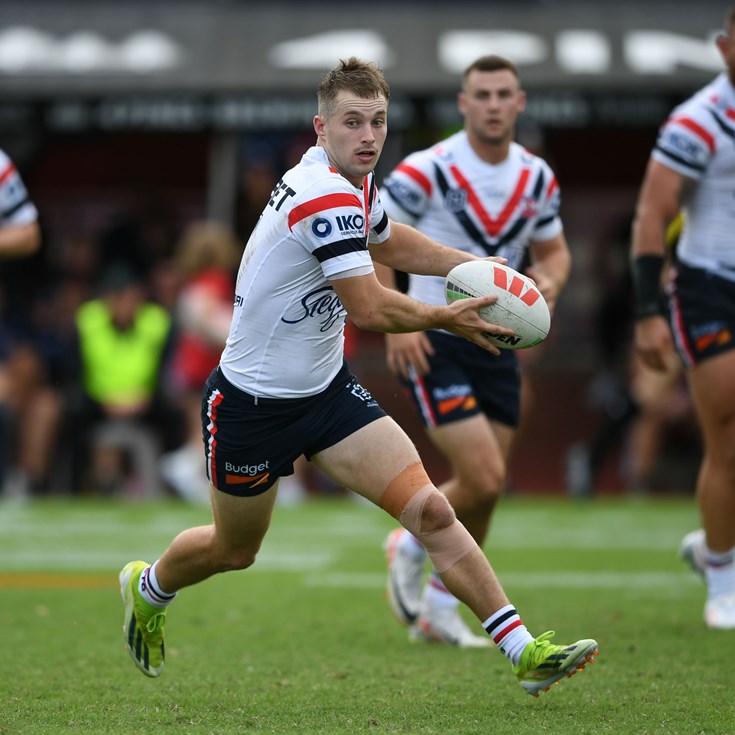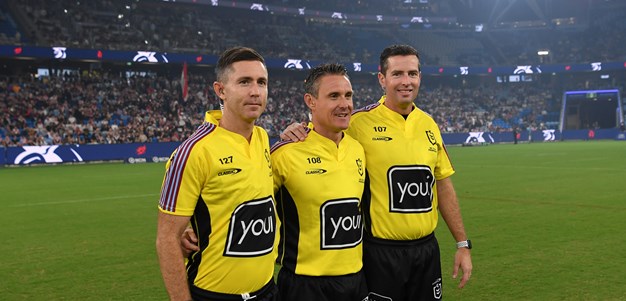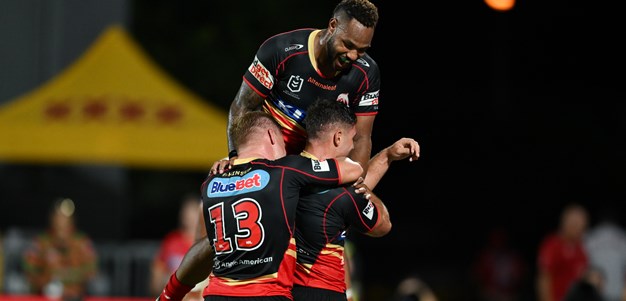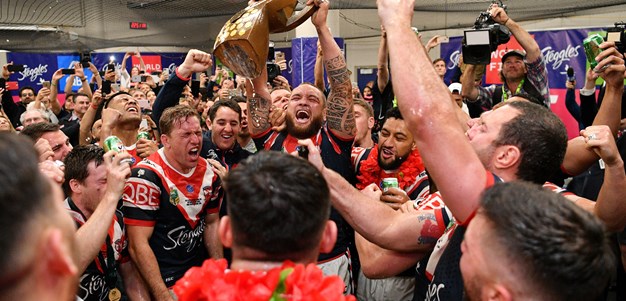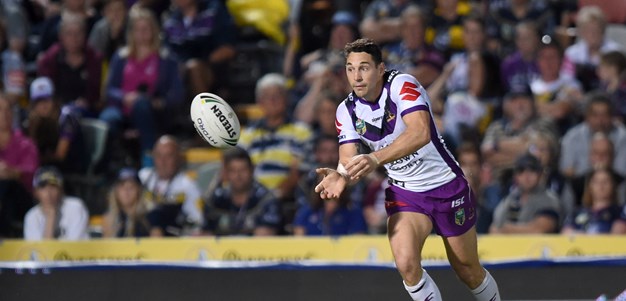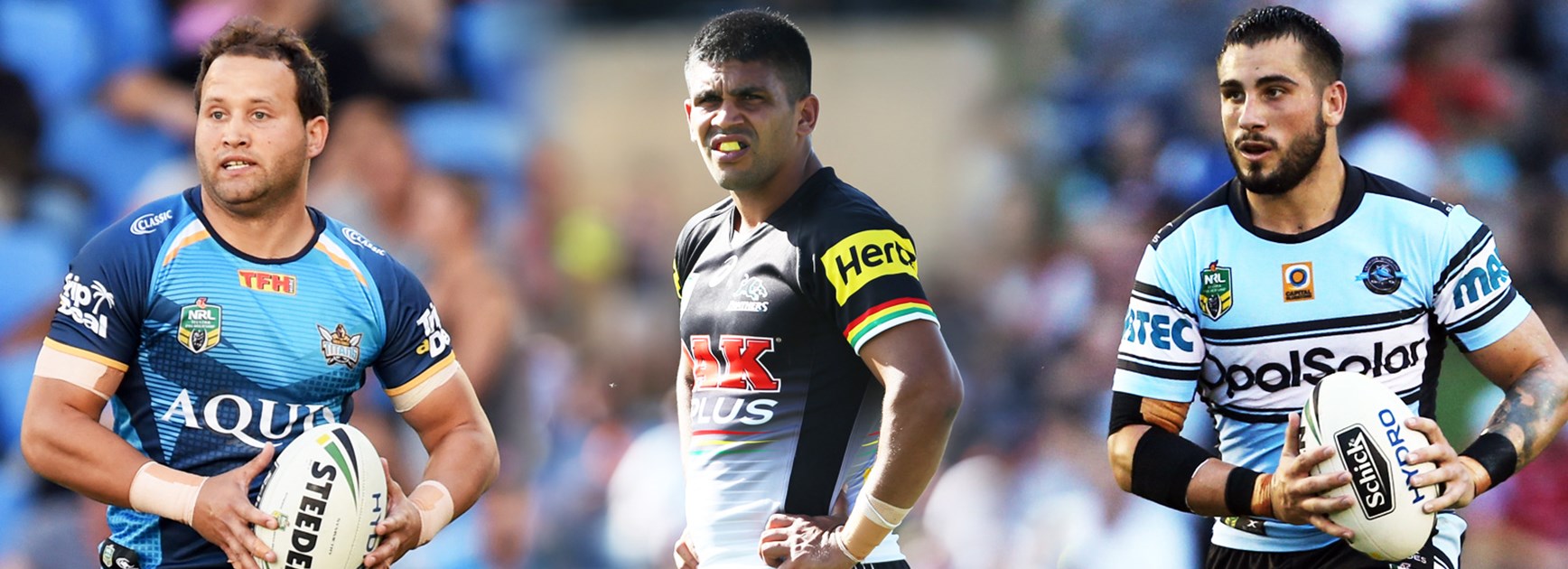
Being branded a 'utility' in the NRL is both a blessing and a curse.
On the one hand it confirms your talents in being able to excel in a number of different positions on the footy field but at the same time it is inferring that you are not proficient enough in any to warrant a starting spot.
Except when the team is under-manned and then you are quickly elevated in esteem to be the most valuable person in the organisation.
In the modern era of the game players such as Craig Wing, Kurt Gidley and Shaun Berrigan became such valuable commodities in the representative arena for their versatility that they carried that tag back with them to club-land, never able to cement one permanent position.
Gidley's utility value was such a prized asset by the New South Wales hierarchy that in Game Two of the 2010 Origin Series he captained his state from the bench.
Michael Morgan and Jack Bird are two players currently navigating the tightrope of rep super sub and established club starter but there are others who are not so fortunate, and pay a heavy price for it.
Tyrone Roberts was recruited to the Titans from the Knights because he had played 82 of his 97 career games at halfback but after a year at five-eighth in 2016 has this season become the club's Mr Fix-It.
In 17 games this year he has filled the fullback role normally reserved for Jarryd Hayne on nine occasions, substituted for Blues hooker Nathan Peats twice, took the place of injured five-eighth Kane Elgey four times and started on the bench twice.
He performed admirably with every task he was given yet with so much of the Titans' salary cap invested in Hayne, Peats, Ash Taylor and Elgey, Roberts looks like being the one who will be squeezed out at season's end.
Where he is unlucky, according to former NRL coach Matt Elliott, is that unlike Bird, Morgan and Penrith's Tyrone Peachey, Roberts doesn't have the attributes to be a running forward if required, lessening his value as a bench option.
"They're highly valuable players but you have to look at how many positions they cover and who you have already got. Tyrone Roberts becomes more valuable if someone gets busted," Elliott told NRL.com.
"With the amount of subs reducing, if you've just got a sub there that can only play in the halves or fullback… they're normally 80-minute players so the value of them has dropped.
"If you look at someone like Jack Bird who can play halves as well as back row or centre his value goes up. You can put him on the field and he can play in the back row so he's going to play minutes regardless of whether someone's going to get busted or not.
"Tyrone Peachey is a great example. Can play centre, back row, hooker easily and even in the halves.
"Their value, the guys that can actually play through those spine positions as well as a back row position, are probably a little bit more valuable than someone who fits those playmaking positions only.
"You can go a game and not use Tyrone Roberts. Michael Lichaa has got on the field with less than 10 minutes to go in his past three games; you've got to question the sanity of having someone like that on your bench.
"You're better off having someone there that can cover hooker but can play other positions as well."
Few players in NRL history understand the double-edged sword of wearing the utility tag better than former Rooster Chris Flannery.
Now the CEO of the Sunshine Coast Falcons, Flannery played every position bar prop and hooker across 126 games in his seven seasons with the Tricolors including 41 off the bench.
While acknowledging that his versatility opened the door to first grade earlier than it might otherwise have come, he admitted that never settling in one position prevented him from ever playing one position as well as he possibly could.
"At times it can help you but at times like this when you might be switching clubs, if you haven't been pencilled into a position sometimes it's hard for other clubs to get a bit of a gauge on you," Flannery told NRL.com.
"You could never really string enough games together to find some really good form in that one position.
"That can definitely hamper you sometimes, when you haven't played a lot of the one position and teams haven't seen you play in one position enough.
"As you get a little bit older you really want to just settle into one position and be known for one position."
And it's not just the coaches who sleep easier the night before a game knowing they have a ready-made insurance policy at the ready should disaster strike over the course of 80 minutes, their teammates are also more at ease knowing they have an emergency back-up if someone else breaks.
"If one player goes down in a certain position they can come on and fill it," Penrith's Trent Merrin said of Peachey's value to the team.
"He's doing a great job at centre for us but we know that if someone does go down, we have a player like 'Peach' who can come in and fill that role.
"It makes it a lot easier for the coach knowing that you can rely on a guy while not having to disrupt the team."
The other balancing act in the argument as to why the jacks-of-all trades can't command the cash of the 'masters of one' is that clubs don't want to spend big money on a back-up any more than a player wants to be considered second-best.
"He's a player that wants to contribute so your aspirations aren't to come off the bench and I don't know if that's ever not going to be the case," said Elliott.
"Most utility players have aspirations to get out there and contribute for 80 minutes across all positions.
"The value of them to a club is massive. I don't know the monetary value to them but the value to a club is massive, but probably not as valuable as your starting spine players."
Even if in the case of Roberts they cover for all four key positions during the course of a season.

